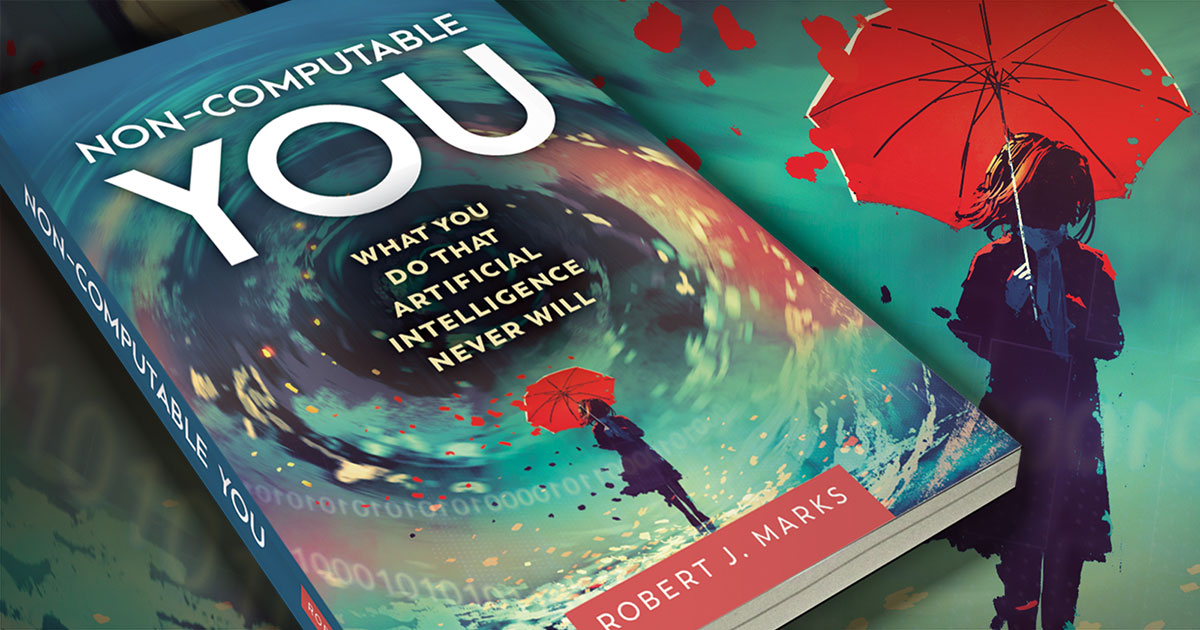 Faith & Science
Faith & Science
 Neuroscience & Mind
Neuroscience & Mind
Marks, Dembski: AI Hype and the “Illusion of Possibility”

In his new book Non-Computable You: What You Do that Artificial Intelligence Never Will, computer engineer Robert J. Marks II deconstructs hype about AI and its capabilities. Scientists and the media use various techniques to “magnify the perceived impact of new technology.” Marks described one such technique here yesterday in a fascinating excerpt from the book, on what he calls “seductive optics.”
But what does it matter if the public is misled? What’s at stake? Marks and his colleague William Dembski discussed that and more in a very interesting Q&A with John West at the recent Dallas Conference on Science and Faith. That’s up on YouTube now:
Sure, they explain, there is an algorithmic aspect to human beings, but not “without remainder.” There is more: what’s most profound and important about us — most human — is not computable. And therefore, where we go, AI machines can’t follow.
Yet the illusion remains – for example, of humans someday being able to achieve immortality by uploading themselves to a computer. Dembski cites another colleague, J. Budziszewski, who contributed the phrase “illusion of possibility.” Says Dembski, “the thought that it might be achievable, that ‘illusion of possibility,’ I think is very compelling to people and it has consequences. It doesn’t have scientific consequences. It doesn’t at the end of the day change the underlying computer science. But it does influence how people think about themselves and the public policy decisions they make for us, [with] the undermining of faith as a consequence.”
The materialist agenda is served by AI hype, while the human mission is damaged. And that is what is at stake.
